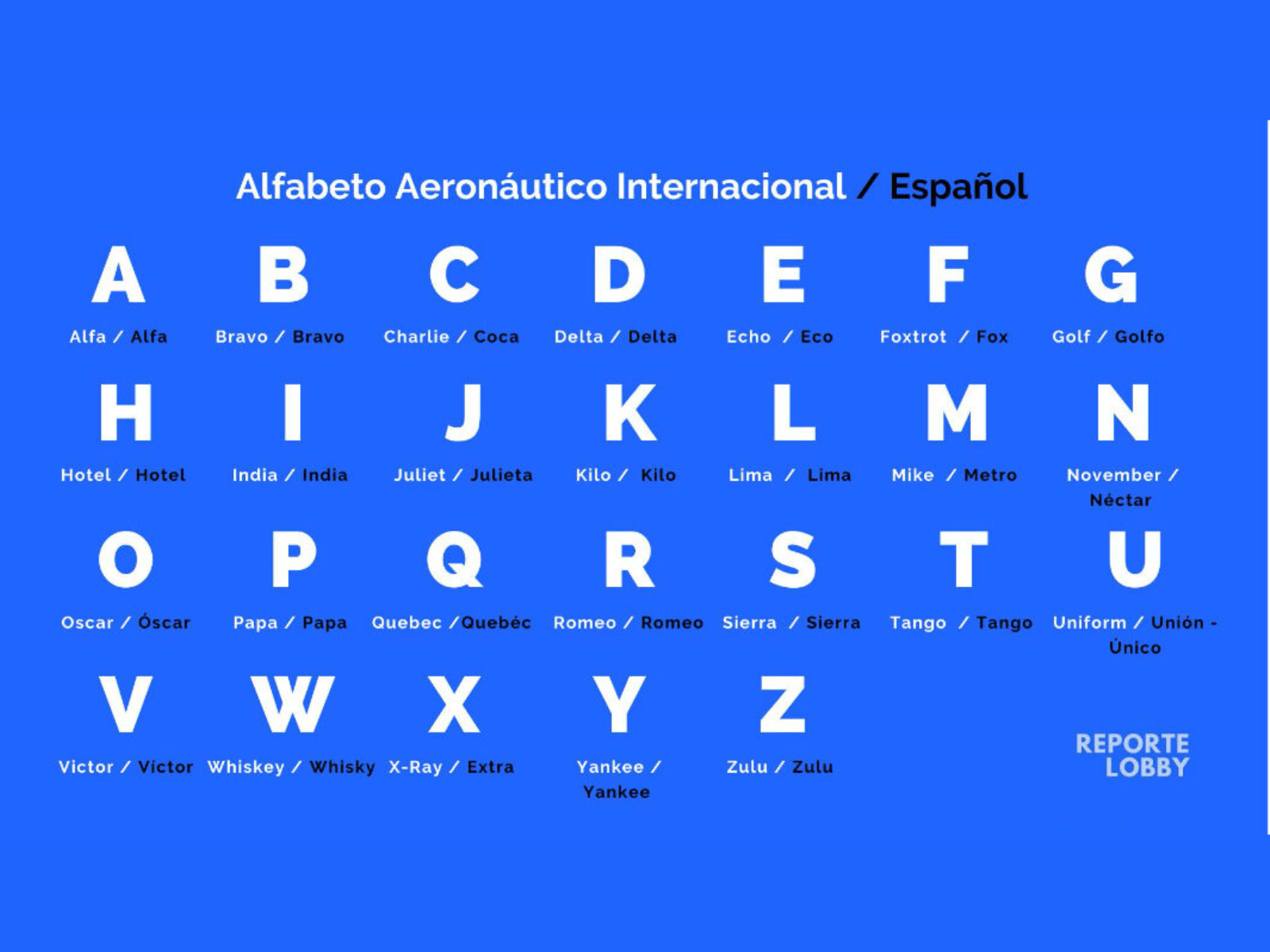Zaragoza, March 1, 2024
Have you ever heard a pilot speak in code? No, they're not conspiring to hide air secrets, they're simply using the ICAO alphabet, also known as the aeronautical alphabet, to communicate more efficiently and clearly. Would you like to crack this mysterious code and add a touch of airplane to your vocabulary? Then join me on this fun journey from Alpha to Zulu!
Have you ever heard of the ICAO or aeronautical alphabet? Don't worry if you haven't! In this article, we show you the fascinating world of aeronautical communication and how this alphabet can make your communication more accurate.
The ICAO alphabet: from Alpha to Zulu
The ICAO alphabet, also known as the aeronautical alphabet, is a communication system designed to avoid confusion when spelling words or codes over the radio. Each letter is represented by a specific word to ensure clear and accurate understanding among pilots, air traffic controllers and aviation personnel worldwide. From "Alpha" to "Zulu," each word has a unique and distinctive meaning.
Effective communication: the key to avoid misinterpretations
Imagine this situation: you are in a crowded airport, trying to transmit crucial information about your flight by phone or radio. This is where the ICAO alphabet shines with its simplicity and effectiveness. Instead of confusing similar letters like "B" and "D", you can clearly say "Bravo" or "Delta", avoiding misunderstandings and ensuring that your message is conveyed correctly.
Can you imagine the consequences if the person in charge of issuing your airline ticket got the information wrong and the name you booked does not match the one in your passport? You would simply not be able to fly as the regulations are extremely clear on this matter.
Practical tips for using the ICAO alphabet
Learn the key words: take some time to familiarize yourself with the words associated with each letter of the ICAO alphabet. Practicing their pronunciation will help you communicate with confidence.
Use it in everyday situations: Need to spell your name on the phone? Try using the OACI alphabet! Not only will you impress whoever is on the other end, but you'll also avoid common mistakes.
Have fun with it: Why not turn OACI alphabet practice into a game? Challenge your friends or family to spell words using this system - they're sure to have a good time!
Application of the aeronautical alphabet in the business world
Applying the OACI alphabet in the business environment when spelling a name can have significant benefits in effective communication and clarity in conveying information. Here are concrete examples of how the use of this alphabet can be advantageous:
Avoid misunderstandings: Spelling a name using the ICAO alphabet, such as "Alpha - Bravo - Charlie - Delta", reduces the possibility of confusion between similar letters such as "B" and "D", ensuring that information is transmitted accurately and without errors.
Greater clarity in communication: by using the ICAO alphabet, each letter is associated with a specific internationally recognized word, which facilitates understanding between interlocutors and ensures that the name is transmitted clearly, even in noisy or interfering situations.
Efficient data transmission: in business environments where fast and accurate communication is essential, the use of the OACI alphabet when spelling names can speed up the process, avoiding repetition and ensuring smooth communication between collaborators.
In summary, applying the OACI alphabet when spelling names in a business context not only improves the accuracy and clarity of communication, but also contributes to more efficient and effective interaction between team members. Using this system can be a valuable tool to optimize communication in any company!
Application in the educational field
Learning the ICAO or aeronautical alphabet is not only beneficial in aviation, but also has significant advantages in education and child development.
Here are some of the benefits of learning the OACI alphabet in education:
Thinking and language development: knowing and practicing the OACI alphabet contributes to the development of logical thinking and language skills, which can improve communication and expression.
Promotes empathy and reflection: learning the OACI alphabet can help develop empathy by improving understanding of words and their meaning, thus promoting more effective communication.
Boosts motor skills: practicing the OACI alphabet, either by spelling words or playing with letters, can help sharpen eye-motor coordination and motor skills in children.
Stimulates creativity and imagination: interacting with the OACI alphabet in a playful way promotes the development of creativity and imagination in children, which can have long-term benefits on their cognitive ability.
Learning the OACI alphabet goes beyond aviation, it is a powerful educational tool that can enhance children's cognitive, language and motor development, as well as improve communication and expression in people of all ages. Exploring this communication system can be both educational and fun!
Conclusion
In summary, the ICAO alphabet is not only a vital tool in aviation, but it can also be a fun and effective way to improve your communication in everyday situations.
Next time you have to spell a word over the phone or in person, remember the words from "Alpha" to "Zulu" and amaze everyone with your mastery of the aeronautical language. Bon voyage!
YOU WILL ENJOY READING


JOIN THE CLUB
"LIVE FLYING"
why will you like it?
In the club you will find...
- Promotions with special discounts only for subscribers.
- Travelers' meetings.
- Online travel chats, learn the secrets of the cities where we fly.
- Sweepstakes and contests.
- Top guides with the best secrets of the cities where we are going to escape.
- Visiting the cockpit of a Boeing 737, a photo you will love to have.
- Solidarity actions.
- Workshops from "losing the fear of flying" to "how to organize your getaway saving time and money".
- Ask the expert: everything you would like to know about the world of aviation and never dared to ask.
- Passenger stories. Share with your fellow club members the photo, anecdote or story that caught your attention during your trip.





